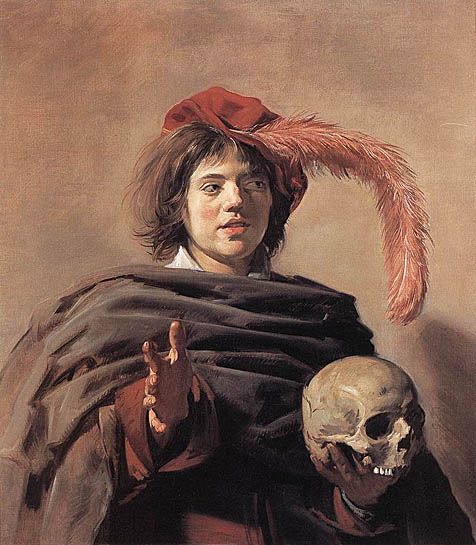Banning books in schools has become a long-standing tradition. In fact, the “Supreme Court set the standard for banning books in 1982” (FindLaw, 2016). The Island Trees School District v. Pico case started with parents complaining about nine different books available to their children, saying that the school’s policy on deciding if a book was appropriate or not was “too permissive” and needed to be changed. The school board immediately banned these nine books which included Vonnegut’s Slaughterhouse-Five and Best Short Stories by Negro Writers by Langston Hughes because the books were “anti-American, anti-Christian, anti-Semitic, and just plain filthy” (FindLaw, 2016). Steven Pico, a senior in high school, challenged this decision, stating that these books were being banned because “passages in the books offended [the group’s] social, political, and moral tastes and not because the books, taken as a whole, were lacking in educational value” (FindLaw, 2016). Several libraries and free speech organizations filed briefs in support of the student which resulted in this becoming a case for the Supreme Court. Unfortunately, the Supreme Court justices were not able to come to a single conclusion; however, they signed a plurality opinion – in which a combination of justices signed off on three different opinions — that basically declare it unjust for school officials to ban books because they simply dislike the message the book is sending or ideas it may give the students; however, they are allowed to ban books if the content and material is deemed inappropriate for the children in the school.
Since this conclusion was made, a variety of books have been banned across the nation: S.E. Hinton’s The Outsiders, Mark Twain’s The Adventures of Huckleberry Finn, and even The Holy Bible have all made it to the list of most commonly banned books. Books are being banned by adults because they contain sexual and/or violent content, obscene language, references to religion and/or politics, or they have queer characters. The list of banned books (and the reasons as to why) is quite literally never ending! Because of this, student’s are missing out on entertaining and educational books and experiences that they should be allowed to have. For example, the Junie B. Jones series by Barabra Park has been banned in several school districts because adults and parents believe it encourages disobedience and teaches the child improper grammar and punctuation rules. Anna Jane Grossman, a writer for the New York Times, claimed that “The spunky kindergartener (first grader in more recent volumes) is prone to troublemaking, often calls people names and isn’t averse to talking back to her teachers” (2007). Grossman continues on to say that:
…she struggles with grammar. Her adverbs lack the suffix “ly”; subject and object pronouns give her problems, as do possessives; she usually isn’t able to conjugate irregular past tense verbs; and words like funnest and beautifuller are the mainstays of her vocabulary. (2007)
In addition to that, Junie B. Jones often finds herself in crazy “shenanigans” like “playing with scissors or head-butting other children” (Grossman, 2007).
For those reasons, adults believe that the series should be banned from schools; however, this series should be allowed to stay in every single school because it does quite the opposite: it teaches kids that it’s okay to make mistakes; in fact, we should expect to make mistakes and use them as learning opportunities. It also gives children a character that they can easily relate to and make connections with. To prove this point, Cecelia Goodnow, a writer for the Chicago Tribune, interviewed several elementary schoolers to get their opinions on the series. The first interview she mentions is with Lauren Lancaster, a 4th grader in Seattle:
“She talks like a regular kid — it’s not all perfect. I used to sort of talk like her,”…the series is “fun and funny. I checked one out from the library yesterday.” (2005)
Children, teachers, librarians and critics all agree that the Junie B. Jones series is one that brings smiles to people’s faces (of all ages), helps teach life lessons, and gives people an easy-to-relate-to fictional character.
Junie B. is a genuine, unapologetically authentic character who is “brave, funny, and …trying her best” (Ciufudean, 2022). Alexandra Ciufudean, a writer for The Focus, explains that Junie B. “spends the majority of the series learning what the right thing is and how to do it – often going about it the hard way” (2022). For example, the series starts with Junie B.’s “first day of pre-school” being “overwhelming, and the school bus so scary” that she doesn’t want to go back (2022). I don’t know about you, but that sounds pretty close to my first day of school! Staying home with my grandparents and mom were definitely more fun than sitting on a sweaty bus!
As aforementioned, the Junie B. Jones series lets students know that it’s okay to make mistakes, and it’s okay not to be perfect 100% of the time. The mistakes you make, whether it be a spelling error or a lack in good judgment, can be resolved and used as learning opportunities. Junie B. Jones makes obvious spelling and grammar mistakes, but she tries to fix them every single time she notices an error she has made. She crosses out the words she misspells and writes the correct spelling above it; she changes her commas to periods, and adds in commas when she thinks she needs to. Junie B. also makes poor choices that are much more serious: name-calling, cheating on a test, copying her friend’s homework. Should she have done those things? No, absolutely not, but she takes credit for what she has done, suffers the consequences, and learns from her mistakes. This series highlights the poor choices that Junie B. makes, but it also emphasizes the changes she goes through and describes how she learns from her actions.
In essence, the Junie B. Jones series shouldn’t be banned in schools because of poor grammar and bad behavior. They should be encouraged because of poor grammar and bad behavior. Children (and even adults) are able to connect with Junie B. and how she is feeling throughout the entire series. It’s obvious that she makes mistakes, but she learns how to be a better person; she learns right from wrong. Students can find comfort, hilarity, and identity in each one of the 28 Junie B. Jones books. For these reasons, that series should have a reserved place on each library’s book shelf across the nation.
References
Ciufudean, Alexandra. (2022, October). “Why are Junie B. Jones books banned? Author flooded by hate mail.” The Focus. https://www.thefocus.news/culture/why-are-junie-b-jones-books-banned-author-flooded-by-hate-mail/
FindLaw Writers. (2016, June 20). “Banning Books and the Law.” FindLaw. https://www.findlaw.com/education/student-rights/banning-books-and-the-law.html
Goodnow, Cecelia. (2005, December 28). “Junie B. well-loved despite complaints.” Chicago Tribune. https://www.chicagotribune.com/news/ct-xpm-2005-12-28-0512270249-story.html
Grossman, Anna Jane. (2007, July 26). “Is Junie B. Jones Talking Trash?.” The New York Times. https://www.nytimes.com/2007/07/26/fashion/26junie.html



